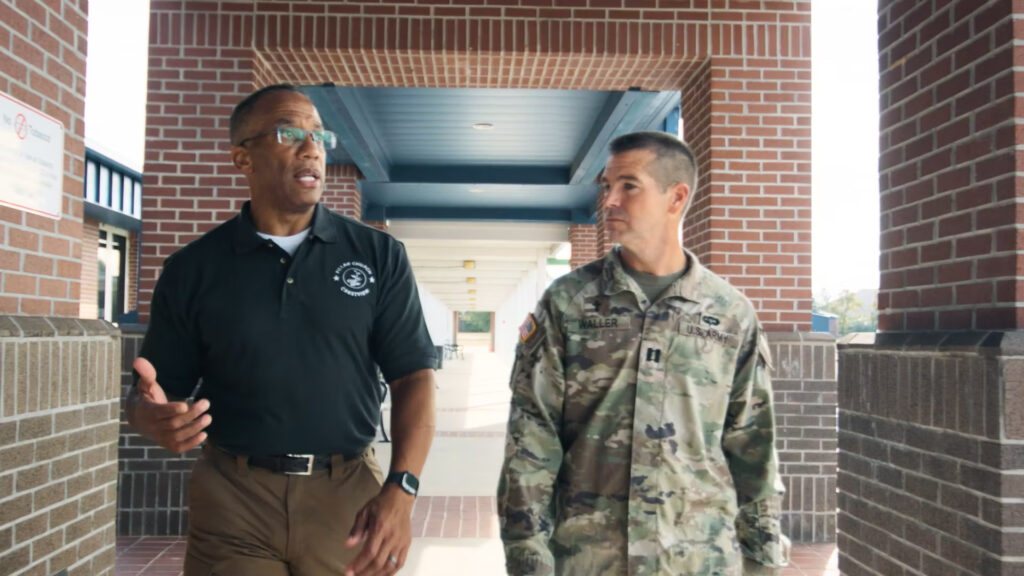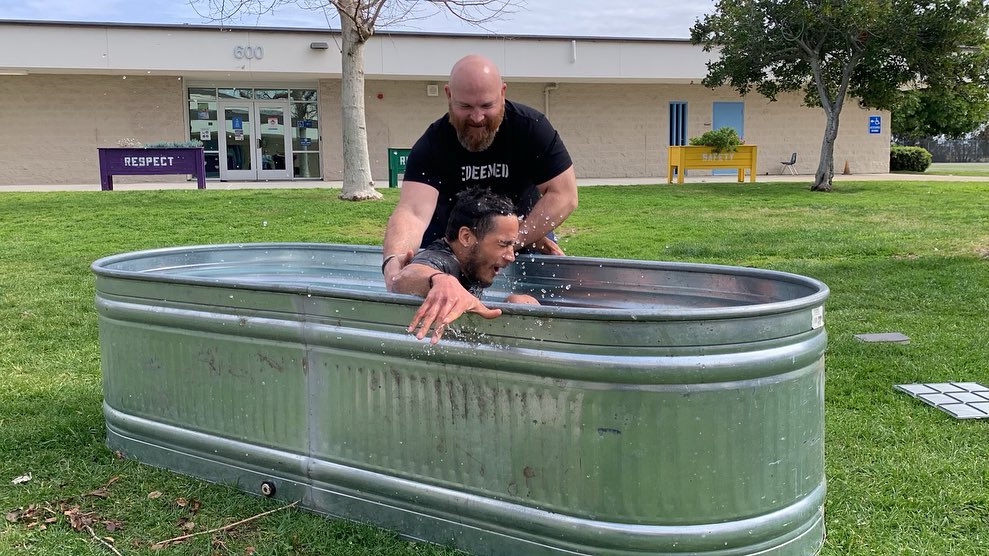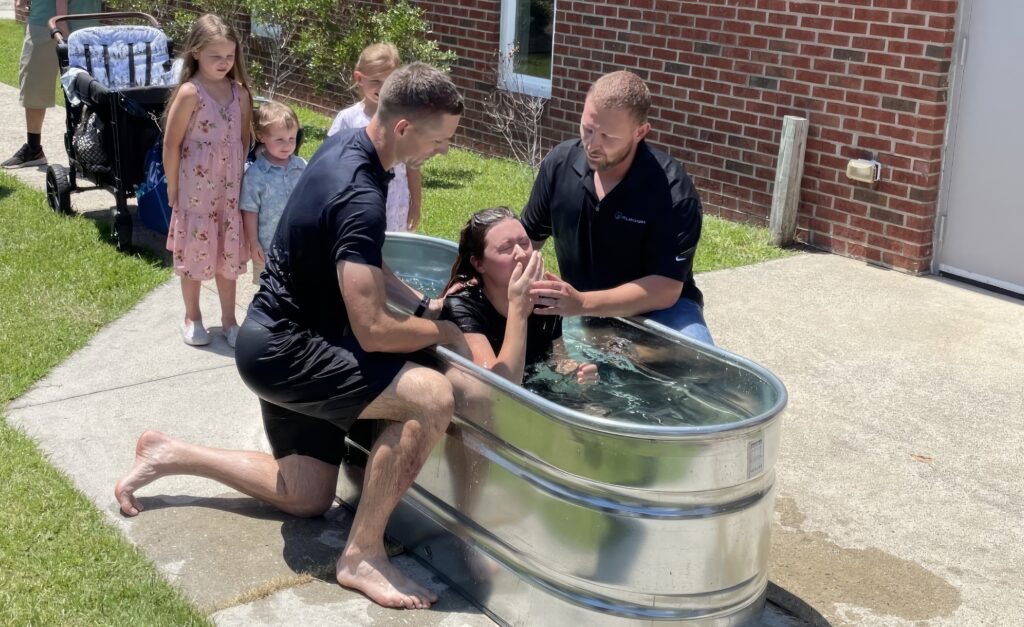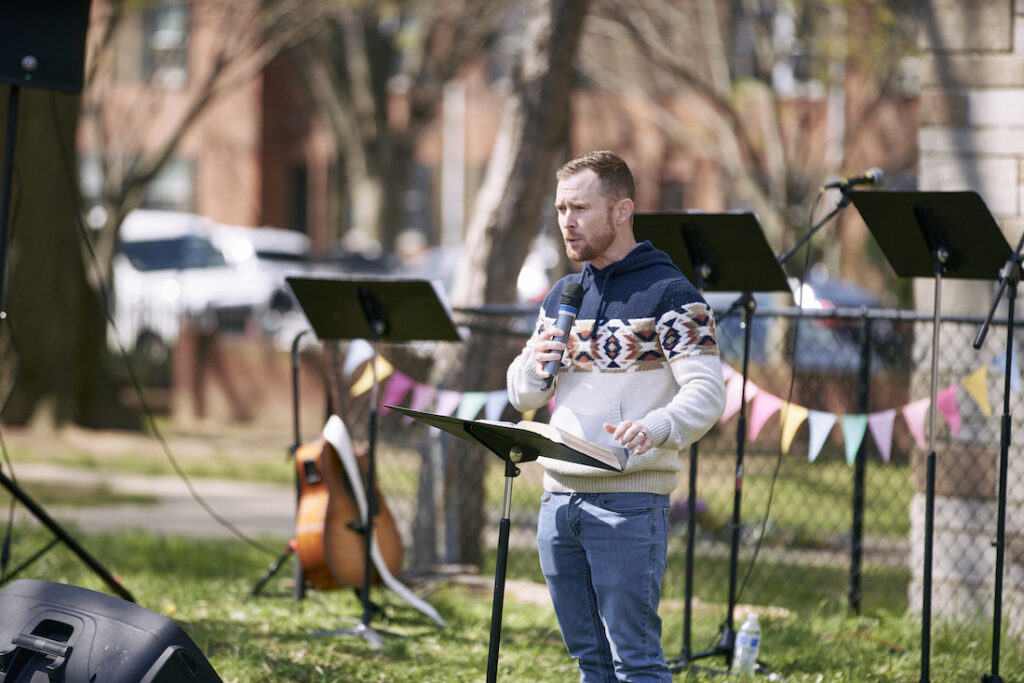“For though you have countless guides in Christ, you do not have many fathers. For I became your father in Christ Jesus through the gospel. I urge you, then, be imitators of me” (1 Corinthians 4:15).
I love being a father. There are five now — ages 13, 11, 10, 5, 1.
I wasn’t sure I’d like being a dad. The responsibility was one thing. It sure seemed like a lot of pressure to have another human life, much less five others, depend on you for survival (and Chick-Fil-A). But it was also personally overwhelming. I’m an only child. So the thought of having a large family, at least by most American standards, wasn’t on my radar. I’m also on the far end of the introversion scale, so having all of these people — and all the noise that comes with them — around me all of the time wasn’t appealing.
But I love it. And not in the flighty, sentimental way, but in the real, practical, concrete realities of life. I am richly blessed by the responsibility, the opportunity, the privilege and the challenges that come with the title “Dad.”
Maybe that joy is one of the reasons Paul’s words in 1 Corinthians resonate with me this Father’s Day. I’m not only a father to five, but I’m also a pastor — one who has been given the privilege and task of caring for a larger family in the local church. Paul equates this work to that of spiritual fathering, saying that this was the role he played for the people in Corinth.
I see at least four clear takeaways from the parallel of parenting to pastoring.
1. Pastoral ministry is personal.
You can lead an organization from a distance. You can’t father people that way. Sure, there are times when my work takes me away from my kids for a few days, or perhaps a week, and I’m required to engage through FaceTime calls and text messages, but real relationships require personal presence.
Notice that Paul contrast fathers and guides. Guides know the path and invite others to follow from a distance. Fathers lead out of personal relationship and tender love. This level of fathering is all the more necessary in light of the scatter prompted by COVID-19.
Hyper-focus on regathering structures and contingency plans can easily bypass the need to spend individual time with members who are scared, angry, sick or grieving. Life-change and genuine disciple-making hinges on our ability to get into the messy lives of real people and love them as we would our own children.
2. Pastoral ministry is modeling.
Paul follows his identity as a father with an oft-repeated exhortation — “follow me as I follow Christ” (see also 1 Cor. 11:1). It’s a lofty call that is fatherly in orientation. Of course, there are movements of overt instruction with our children, but those times are far less than the amount of time spent modeling the character and behavior we want our kids to embody. Like it or not, we are always modeling a certain mode of orientation our kids replicate.
When asked to write this article, I asked my kids to give me some help in the direction I should take. I explained to them that it’s common for pastors’ kids (PKs) to lament this role later in life, and PKs often carry with them a pejorative label. I asked my kids what they liked about being a PK. The first reply from my middle daughter was simple: “I like that I know you love me.” I prodded for more detail. Her description wasn’t about the words of love that were expressed in our home, but about the way my wife and I worked to create an environment that echoed our words in action.
She sees love and, God-willing, she will model this love to others throughout her life. The same is true for pastoral ministry. Our people hear our sermons (some of them), they read what we write (or skim), they download our podcasts (we hope), but more than all of that, they watch the way we live among them and pattern themselves after our way of life.
3. Pastoral ministry is partnership.
Another of my daughters answered my question this way: “I love being part of our family because I know that when I’m helping out by babysitting or washing dishes it’s so you can be at a meeting or preach a sermon, and I’m contributing to people hearing the gospel.”
She’s right. The venture of parenting allows us to invite our children into shared mission. No one in our house is doing everything, but together all of our little things contribute to the betterment of the whole. Honestly, it’s one of the reasons I like having a large family. It forces collaboration. Our survival and sanity depend on each of us using our gifts and abilities to serve one another.
Again, the same is true in church leadership. Our mission as leaders isn’t to do everything — it’s to equip all of God’s people to use their gifts so the collective mission moves forward (Ephesians 4:11-16).
4. Pastoral ministry is humbling
Families provide one of the clearest reflections on our own sinfulness. We all fall short.
Relational proximity shows our weakness. Modeling exposes how far we have to go. Partnership reveals we are not always running hard after the right mission. Our limitations should not excuse us from the work. In fact, these tasks provide a conduit of God’s mercy and grace into our lives. We see our sin, repent of our misdeeds and return time and again to the fount of goodness found in the cross of Jesus Christ. The same holds true for church leadership.
Our spiritual fathering is filled with limitations and the work itself helps us see these shortcomings more clearly. And here’s where church leaders have a choice: We either humbly acknowledge our sin and invite the Spirit’s correction, or we stiffen our necks in prideful disobedience. True spiritual fathers know humility is the path to greatness in the kingdom.
If Paul were writing to church planters in our day, I wonder if he might echo these words from 1 Corinthians chapter 4. Don’t merely be a guide for God’s people. Be a father. Love those entrusted to your care. Enter real relationships. Care enough to get hurt. Model obedience to Christ through daily submission to His Lordship. Die to your wants and desires. Invite others into shared mission. Help them know and use their gifts. And, let your limitations humble you so you depend on Him more.
This Father’s Day may the blessing of earthly fathers press us all to be spiritual parents to God’s ever-growing family.
Published June 18, 2020




